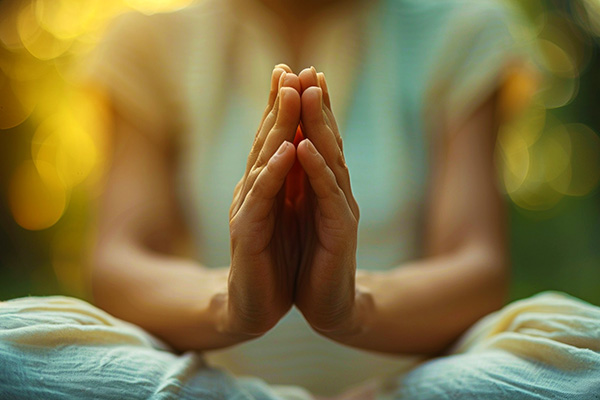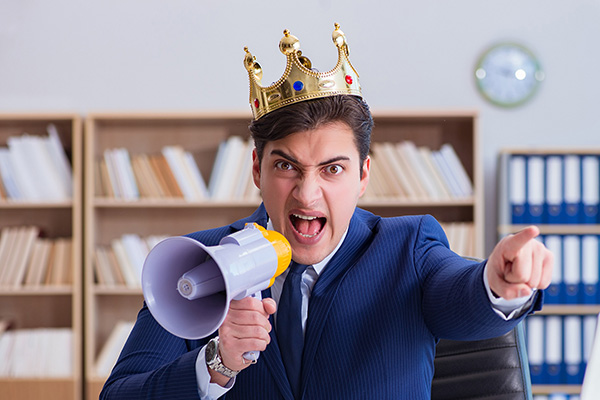Empath
Paranormal, Or Perinormal?
 When we hear the word “paranormal,” we often think of ghosts, psychic abilities, or UFO sightings. But what does the term really mean?
When we hear the word “paranormal,” we often think of ghosts, psychic abilities, or UFO sightings. But what does the term really mean?
Many of us have had moments that feel mysterious or beyond our understanding — experiences that challenge the way we see the world. What’s interesting is that these experiences aren’t always “paranormal” in the traditional sense — they may actually be “perinormal.”
Understanding the difference between these two ideas can help us see our everyday experiences in a new light, making it easier to connect with the mystical side of life without feeling overwhelmed by the unknown.
“The word “paranormal” comes from the Greek word “para,” which means “outside” or “beyond” normal. It refers to things that are beyond the limits of what we can scientifically measure or explain.
Paranormal experiences, such as ghost sightings or psychic phenomena, defy logic and leave a lasting impact on those who experience them. They’re those mystical or supernatural experiences that break the rules of reality and are completely “outside of normal.”
“Perinormal, on the other hand, comes from the word “peri,” meaning “around” or “near.”. These experiences are on the edge of “normal” — they’re those things we sense, feel, or observe that are related to subtle, measurable energies or natural laws, but also remain mysterious and unexplained.
Perinormal experiences show us that the spiritual and mystical are often much closer to reality than we realize – they just exist in a space we do not yet fully understand, or perhaps never will?
Spiritual Self-Care For The Sensitive Soul
 For those of us who are highly sensitive, including psychics, mediums, healers, and empaths, practicing consistent spiritual self-care is essential to maintaining our overall well-being.
For those of us who are highly sensitive, including psychics, mediums, healers, and empaths, practicing consistent spiritual self-care is essential to maintaining our overall well-being.
If you identify with this group and neglect the daily maintenance of your energetic health and spiritual hygiene, you leave yourself vulnerable. This can manifest as emotional, mental, and even physical health problems. The good news? You can safeguard your well-being with a dedicated spiritual self-care routine.
Spiritual self-care is about nurturing your inner being and maintaining healthy energy flow and balance. It includes practices that support your spiritual well-being and ensure that you stay grounded, centered, and connected to your higher self and the universe.
Regular spiritual self-care is also a matter of health. Research strongly supports the positive effects of spirituality on our overall health. Studies show that spiritually active people tend to live longer and enjoy better mental and physical health. For example, spirituality has been shown to correlate with a reduced risk of Alzheimer’s disease and cognitive decline.
Spirituality is associated with better mental health, including lower levels of depression and anxiety. Studies show that spiritual activities promote positive emotions such as hope, forgiveness, and gratitude, which contribute to resilience to stress and emotional challenges. It also promotes healthier lifestyles, including reduced substance use and better stress management.
Seeing The Spiritual Essence In Others
 My world was turned upside down when my father was diagnosed with pancreatic cancer. For seven agonizing months in 2005, I became his caregiver, managing the extreme emotional and physical toll of his illness.
My world was turned upside down when my father was diagnosed with pancreatic cancer. For seven agonizing months in 2005, I became his caregiver, managing the extreme emotional and physical toll of his illness.
Even the hospice staff, experienced in end-of-life care, commented at the time that my father was not an easy patient to care for. Their observation confirmed my own feelings on the matter and highlighted the unique challenges of the difficult karmic relationship I had with my father.
Throughout this stressful time, I held out hope for a miracle. I felt compelled to seek guidance, but unfortunately Spirit revealed a timeline of six to twelve months. This devastated me at the time, but I’ve since come to accept that arrivals and departures are part of every soul’s journey. Spirit was simply confirming a poignant truth: at some point we are all called home to the spirit realm.
Despite his resistance to any form of treatment, my father allowed a trusted colleague of mine, a master in his healing modality, to visit our home weekly for body alignment sessions. These sessions became a turning point — not only for my father, but for me as well.
During their second session, my healer friend shared an observation that struck a deep chord. He sensed an immense amount of bitterness and resentment in my father, energies he had perceived without any prior knowledge of my father’s emotional state or life history. He then offered me a piece of wisdom that changed the way I viewed not only my father, but all of my relationships: “Try to see only the true spiritual essence that is your father.”
Not Everyone Chooses The Path Of Healing
 You’ve probably heard the phrase “what they don’t know can’t hurt them.” Sometimes this is true, but there are also times when what people choose to ignore or disregard can cause real harm – not only to themselves, but also to those around them.
You’ve probably heard the phrase “what they don’t know can’t hurt them.” Sometimes this is true, but there are also times when what people choose to ignore or disregard can cause real harm – not only to themselves, but also to those around them.
For those of us with psychic or spiritual gifts, there’s an added complexity: the ability to sense the struggles of others, which leads to the question of when and how to help.
Intuitives, channelers and healers are very aware of the energy of others, even when we’re just going about our daily routines. Whether it’s a stranger in the grocery store or a friend across the room, we tend to sense when someone is struggling with grief, trauma or stress.
We may choose to quietly send them comforting or healing energy, hoping it will ease their pain, even if only for a moment, yet the urge to help can be very strong in these situations. And while reaching out and offering help can be very uplifting or rewarding for everyone involved, there are times when our attempts to help are met with resistance, or worse, denial.
It’s especially challenging to see someone we care about turn a blind eye to their own needs or pain, and even more so when our support is disregarded or unappreciated.
One of the hardest lessons I have had to learn in both my personal and professional life is that I can only help those who are willing to help themselves. The sad truth is that sometimes people choose not to act on information that could improve their lives or change their destiny. Instead, their negativity, anger, or fear allows the problem to fester or the behavior to grow, affecting not only themselves but also their loved ones. Over time, this denial creates a cycle of suffering that affects physical, mental and karmic health and well-being, sometimes for generations.
How To Deal With Toxic Drama Royalty
 These days, there is drama, crazy-making and toxic behavior everywhere you turn. And it’s not just on social media and public transportation…many of us have to deal with people in our personal and professional lives who are overly demanding, entitled, melodramatic, mean-spirited, always in victim mode, or just plain unhinged.
These days, there is drama, crazy-making and toxic behavior everywhere you turn. And it’s not just on social media and public transportation…many of us have to deal with people in our personal and professional lives who are overly demanding, entitled, melodramatic, mean-spirited, always in victim mode, or just plain unhinged.
Sadly, many of these spiritually handicapped souls are people close to us, people we care deeply about. It can be daunting to deal with their toxic actions and volatile behaviors, and trying to ignore them is exhausting and even impossible in the long run.
But other people’s dysfunction and drama doesn’t have to weigh down your spirit, and it doesn’t always have to be so difficult to deal with, especially with some spiritual support and backup.
The first rule to remember is that love works better than anything else. So, the first step should also be to offer the “drama royal” plenty of compassion.
Chances are the drama king or queen in your life is wounded in some way. Dysfunctional behavior and toxicity often stem from unresolved hurt or deep trauma.
Many people who exhibit dramatic or demanding tendencies often aren’t aware of how their behavior affects others. They may be caught in a cycle of emotional turmoil and, as a result, seek external validation through attention and theatricality. Rather than focusing on the label “drama,” it’s helpful to think of these behaviors as expressions of unresolved pain or unmet emotional or spiritual needs.
Angelic Energy Maintenance For Empaths
 As an empath and psychic counselor, I have had to learn how best to navigate the intense energies that come with working with others.
As an empath and psychic counselor, I have had to learn how best to navigate the intense energies that come with working with others.
Early on, I often found myself drained, overwhelmed, and weighed down by emotional clutter that wasn’t even mine. I didn’t realize how much I was absorbing from clients, loved ones, and even strangers.
Over time, I’ve learned that clearing and protecting my energy is essential not only for my well-being, but also for maintaining clarity in my work. By understanding how to release what doesn’t belong to me and strengthen my auric boundaries, I have been able to thrive both personally and professionally.
Being an empath means that you’re highly sensitive and deeply attuned to the emotions and energy of those around you. You naturally absorb the feelings of others, which can often result in you carrying the emotional weight of others.
This pattern shows up not only in romantic relationships, but also in work, family, and friendships. If you’re constantly picking up the extremes of other people’s energy, it can leave you feeling heavy, drained, irritable, and disconnected from yourself – as if nothing you try makes a difference. This happens because instead of directing your own energy, you’re constantly processing someone else’s.
Empaths are like emotional air purifiers, prone to absorbing the energies of everyone around them – whether it’s a stranger in the grocery store, your partner, your boss, or your family. When your aura becomes clogged and dysfunctional, you experience heaviness, discomfort, and emotional instability.
A Step-By-Step Guide To Shielding Your Energy
 It is important to be aware of the invisible metaphysical forces that surround us, for not all of them are for our highest good. The energy deficiencies and dysfunctions of others, while often subtle, can have a profoundly harmful effect on our personal and spiritual well-being.
It is important to be aware of the invisible metaphysical forces that surround us, for not all of them are for our highest good. The energy deficiencies and dysfunctions of others, while often subtle, can have a profoundly harmful effect on our personal and spiritual well-being.
We all have to deal with people in our lives who can be particularly draining and unsettling – commonly known as ‘energy thieves’ or ‘psychic vampires’. Like psychic parasites, these people knowingly or unknowingly drain the energetic vitality of others, leaving their victims feeling drained, anxious, depressed, or even physically ill.
For those of us who are particularly sensitive to the energies of others, this can directly affect our physical, mental, emotional, and spiritual health in profound ways.
Energy shielding is therefore an essential spiritual practice for maintaining balance and protecting oneself from such negative influences. This type of energy work is essential for creating a protective auric barrier that ensures that the negative energies of others do not infiltrate your mind, body, or spirit. With the right attitude and some spiritual support, we are never defenseless against the negativity of others.
Energy theft, or vampirism, is not just a matter of superstition; it is something I have observed consistently throughout my life, both personally and professionally. In my own psychic practice, I rely on a robust energetic self-defense routine to ensure that any negative energy directed at me is deflected and rendered harmless.